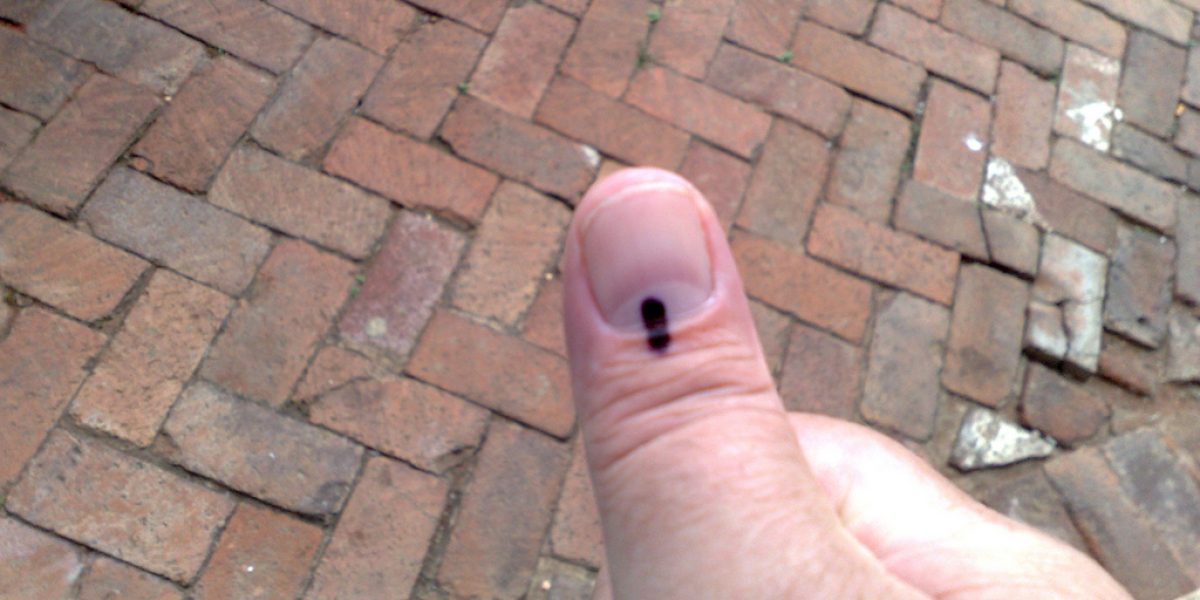Passing baobab trees on our way to polling stations in tiny villages, my observer team from the Electoral Institute of Southern Africa (EISA) came across many others on the same mission: numerous local observers, a team of parliamentarians from the southern African region, and international observer groups from the European Union (EU), the Commonwealth and the Carter Centre.
The only observer mission I never met was the official Southern African Development Community (SADC) delegation. Other observers I talked to had the same experience, confirming that the SADC group was the least visible of all the major observerteams in Mozambique.
Why point this out? Because SADC governments aim to become the main arbiter of whether Southern African elections are ‘free and fair’, pushing aside what they see as the overly judgmental verdicts handed down by Western outsiders in favour of a more sympathetic form of election observation based on in-depth knowledge of the obstacles that poor and recently democratic countries such as Mozambique have had to overcome.
At the Mauritius summit in August this year Heads of State from the 13 SADC countries signed the SADC Principles and Guidelines Governing Democratic Elections. At the time, president Thabo Mbeki argued that member countries could even be expelled from SADC if they did not adhere to the election guidelines. These were tough new words, which many interpreted to be a warning to the Zimbabwean government ahead of that country’s parliamentary elections in March 2005.
Since Mbeki’s statement, elections have been held in Botswana, Namibia and Mozambique, all with official SADC observation teams present. Thus, the regional organisation already has a track record on how it applies its new election guidelines in practice. While the elections in Botswana and Namibia, two of the more advanced democracies in the region, went relatively smoothly and the official SADC observers could give the thumbs-up without controversy, the more difficult elections on 1 and 2 December in Mozambique revealed some important shortcomings in SADC’s election observation practice.
The democratic principles endorsed in the SADC guidelines are in line with those of EISA and the other observer missions present in Mozambique. They include the right to campaign freely; equitable access to the media for all political parties; the right of citizens to vote in a secret ballot free of intimidation and violence; the independence and integrity of national electoral commissions; and the guarantee that the votes cast by citizens are reflected in the final results – in other words, that there is no cheating in the vote counting process.
The two-day voting stage of the Mozambican elections went admirably well, considering the lack of resources and infrastructure haunting one of the poorest countries in the world. The voting climate was largely peaceful and polling staff were well-trained and conscientious. In interim statements in the days after the election, this perception was confirmed by observer group after observer group.
However, all the observers have so far refrained from declaring the election free and fair, since the election process is far from finished yet. The vote counting will not be concluded and the election results announced until 17 December. At the moment, the Mozambican National Electoral Commission is still busy adding up the voting result forms sent in by around 13,000 polling stations across the country.
In the last general election in 1999, this was the phase in which problems appeared and observers started to become concerned about the transparency and fairness of the election. That time the Electoral Commission rejected 6.6 percent of the voting result forms in the presidential election and 8.7 percent of the parliamentary result forms without allowing observers to verify what was wrong with them. As a result, the opposition party, Renamo, which lost the election with a small margin, went to the Supreme Court and refused to take up its seats in parliament for six months.
Remembering this, EISA and all the other observer groups decided this time to wait out the whole process before providing a final verdict. All observers, that is, except SADC, which on the day after the voting declared that the Mozambican elections had been ‘free and fair’ and encouraged all political parties to accept the results.
This premature declaration adds to concerns that SADC is not yet willing to criticise sitting governments on how they conduct elections. SADC has provided steadfast support to the Zimbabwean government, despite its 2002 election that, measured against any reasonable standard, was fatally flawed. The Mozambican election process this month may well turn out to be entirely satisfactory, but SADC undermined its own credibility by announcing its satisfaction before the most controversial part of the election process had even started.
The endorsement at the Mauritius summit of the SADC election guidelines was heralded by Tanzania’s president Benjamin Mkapa as the start of an era where southern Africa took charge of its own democratic destiny, rather than allowing itself to be “lectured on democracy by the very countries, which, under colonialism, either directly denied us the rights of free citizens, or were indifferent to our suffering and yearning to break free and be democratic”.
This is a fine sentiment, but SADC needs to first to prove itself as a credible election umpire. Come the parliamentary elections in Zimbabwe in March 2005 – an election process that is already flawed considering the heavy restrictions on freedom of assembly and the clamping down on the independent media – SADC leaders will have to show that they are capable of criticising a fellow SADC government. Only by doing so can the organisation shake off its image as an exclusive club of ruling parties more interested in supporting each other than in ensuring free and fair elections.







